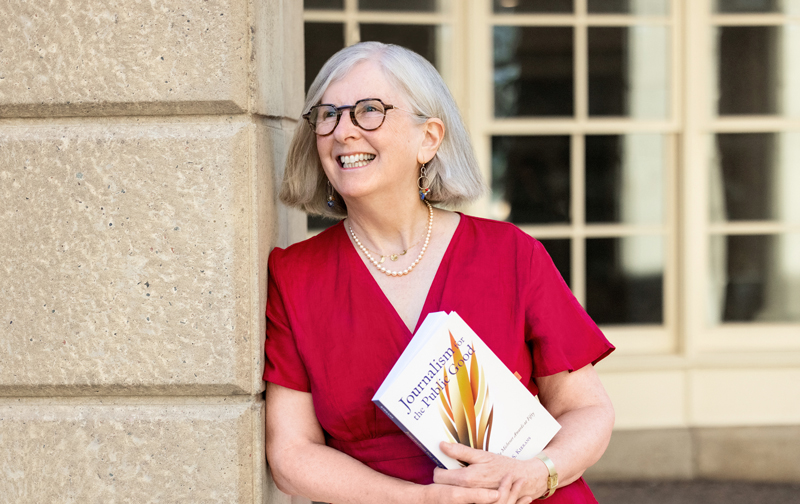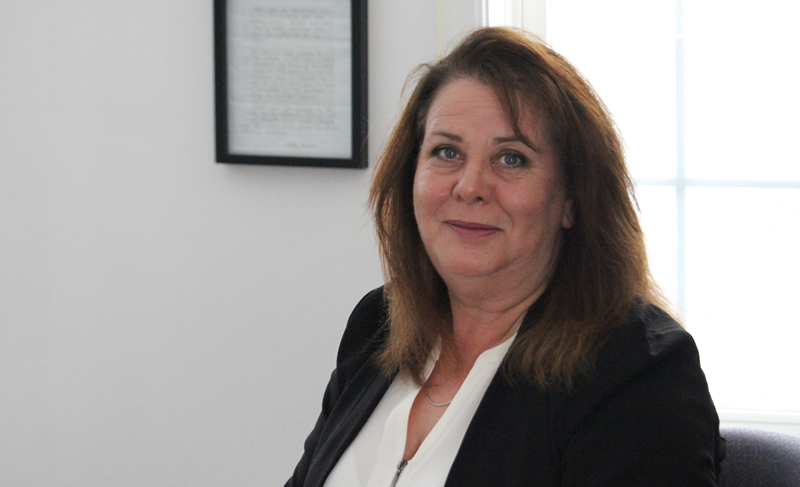Account Login
Don't have an account? Create One

Kim Kierans’ new book, Journalism for the Public Good: The Michener Awards at Fifty, published in 2024, by Bighorn, the University of Calgary Press, provides a timely examination of the Michener Awards. Named after former Governor General, Roland Michener, the awards have, for more than half a century “honoured outstanding and unbiased journalism that results in positive change for the public good,” according to its website.
“The Micheners are like our Pulitzers,” said Keirans, a Halifax-based author, journalist and educator, referencing the better-known American prizes in journalism, arts, and letters. “They celebrate the best stories in Canadian news media each year, in any medium. Journalism that makes a measurable difference in the lives of Canadians, holds institutions and governments to account for their actions, and pushes for change. And yes, it’s true, some journalists in Canada don’t even know about the Micheners, let alone the general public.”
This relative lack of profile was one of Kieran’s motivations to write the book. The other, she said, was rereading the stories—“It was like visiting old friends” —and introducing these shining stars to new friends, her readers.
The former director of the School of Journalism and a professor at King’s College, Halifax, Kierans is now a senior fellow at Massey College, Toronto. Earlier in her career, she worked at the Canadian Broadcasting Corporation, researching and creating investigative documentaries for radio. As a journalist, she has worked on every side of the desk, as a staffer, a freelancer, an editor, and a judge of many different journalism awards provincially and nationally. She has won numerous awards for her own stories, and for her judging, including a Michener Award for meritorious public service journalism.
Kierans also has an international reputation, having trained journalism students, presented lectures, acted as a governmental consultant, and done workshops and courses on journalism all over the world.
“Some people say we don’t need journalism anymore. Yes, we do! We need fact-based, independent journalism so citizens can make informed decisions about the society and world they live in.”
—Kim Kierans
Her affiliation with the Michener Awards is longstanding. From 2010 to 2022, she worked for the organization as chief judge, president, vice-president and board secretary. This included involvement with the Michener Awards Foundation fellowships, started in 1989, which allow mature journalists to take a leave from work to study, research and write.
“Journalism is a fundamental pillar of democracy,” Kierans said. “Some people say we don’t need journalism anymore. Yes, we do! We need fact-based, independent journalism so citizens can make informed decisions about the society and world they live in.”
As for journalism for the public good, the particular focus of journalism that the Michener awards celebrate, Kierans applauds the profound work that has been done. “These are stories that have made a difference in the lives of Canadians, stories that speak for those who can’t speak for themselves.”
Story highlights make for exciting reading in the book, which is well-paced and comprises a comprehensive record of the foundation’s history. The book’s appendix, showing the winners and finalists from 1970 to 2022, will recall to readers the stories that many Canadians talked about at the time—some still do. The names and stories live on: Donald Marshall, Robert Dziekański, Anishinaabe sisters Sacha Raven Bob, Arizona Bob and Shania Bob, Ashley Smith, along with “the Shelburn school for boys,” “Somalia military coverup,” “mercury poisoning, Grassy Narrows.”
Bigger networks and newspapers are frequent winners. But community newspapers, such as the Prince George Citizen, have also claimed the top prize.

“I did some digging,” said Kierans, “and discovered that the Michener winners from Atlantic Canada were not from the established media. It was the smaller newspapers or broadcasters, like the Halifax Examiner in Halifax, or The Independent in Newfoundland, or the Dartmouth Free Press.”
She admits to being “very concerned” about the current lack of local news. “When you take away, for example, a seasoned journalist such as Vernon Oickle, how can you cover the community?”
Liverpool-based Oickle started writing for newspapers on the South Shore back in 1980. His career spanned more than 40 years and included working at several newspapers in the region. The author of numerous books, his final stint as a local journalist was as a columnist in the weekly paper, The South Shore Breaker.
“My career in newspapers ended this fall when the new owners of the paper decided to pull my column,” said Oickle. He admits he was “disappointed” with the newspaper’s decision, as he deeply enjoyed the connection with his community on a wide variety of subjects.
“However, the feedback and response I have received from readers missing my column has been gratifying,” he said. “They seem to miss the column as much as I do.”
An optimist, Oickle lives in the moment, but doesn’t discount a comeback. “Who knows what the future holds?” he asks cheerfully.
Kierans, too, is “wired to be an optimist,” about all forms of news media. “Paper or online, whatever it may be, it’s the content that matters, not the platform. Most important of all, is the story.”

Nicole Fawcett, the publisher and owner of The Reporter, in Port Hawkesbury, Cape Breton, agrees that story is everything. Fawcett, who bought the newspaper only a year and a half ago, and has already seen a rise in subscriptions, with 23 people now on staff, said she has a “passion for community news.” She is proud to own one of over 800 community newspapers in Canada.
“I have an abiding love for community,” said Fawcett, whose family goes back generations in the “Quad Counties” of the region. Her motivation is to keep the newspaper, along with its new bi-weekly insert, The Victoria Reporter, alive and thriving. “I work with all these talented people, staffers and freelancers. Together, we’re here to inform the public, and to support and grow community spirit.”
Kierans is proud of the Micheners and the news media, large and small, that have either won or been nominated for these awards—and supportive of those who may yet be. She concludes: “As long as journalists are poking around, asking questions and holding those in power to account, sharing what they find out, and effecting change, the Michener Award will be there to honour and celebrate journalism organizations—in whatever form they take.”
Editor’s Note: The Book Report series is normally written by staff reporter Ashley Fitzpatrick, however she is currently undertaking a professional development sabbatical as a St. Clair Balfour Fellow at Massey College, University of Toronto.
More Book Reports:
In Book Report, Atlantic Business Magazine is highlighting non-fiction focused on Atlantic Canada and Atlantic Canadians, and from Atlantic Canadian publishers. These short pieces will offer details from upcoming business biographies, Q&As on new releases and in some cases fresh commentary from non-fiction authors on the subjects of their published works.
Comment policy
Comments are moderated to ensure thoughtful and respectful conversations. First and last names will appear with each submission; anonymous comments and pseudonyms will not be permitted.
By submitting a comment, you accept that Atlantic Business Magazine has the right to reproduce and publish that comment in whole or in part, in any manner it chooses. Publication of a comment does not constitute endorsement of that comment. We reserve the right to close comments at any time.
Cancel